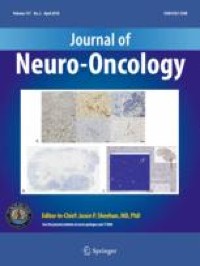|
Anapafseos 5 Agios Nikolaos 72100,Crete,Greece,00302841026182,00306932607174,alsfakia@gmail.com
Blog Archive
- ► 2022 (3010)
-
▼
2021
(9899)
-
▼
January
(1067)
-
▼
Jan 04
(81)
- Neoadjuvant and Adjuvant Pembrolizumab in Resectab...
- An Immune-Related Gene Prognostic Index for Head a...
- Comparative Genomics Reveals Distinct Immune-oncol...
- Breast Cancer Index Predicts Extended Endocrine Be...
- Combinations with Allosteric SHP2 Inhibitor TNO155...
- Serial Circulating Tumor DNA in Predicting and Mon...
- Drug-Radiotherapy Combination Trial Developments--...
- In-depth Clinical and Biological Exploration of DN...
- Genomic Analysis of Germline Variation Associated ...
- Intratumoral Injection of Clostridium novyi-NT Spo...
- Propranolol and Pembrolizumab in Locally Advanced ...
- Detection of Chemotherapy-resistant Pancreatic Can...
- Nivolumab Plus Ipilimumab versus Sunitinib in Firs...
- Genome and Transcriptome Biomarkers of Response to...
- Flumatinib versus Imatinib for Newly Diagnosed Chr...
- MRI and 18FET-PET Predict Survival Benefit from Be...
- Phase I Study of Alvocidib Followed by 7+3 (Cytara...
- International Consensus Definition of DNA Methylat...
- Expanded Low Allele Frequency RAS and BRAF V600E T...
- Novel Methylated DNA Markers in the Surveillance o...
- Open-label, Multicenter, Phase II Study of RC48-AD...
- Development and Validation of a Gene Signature Cla...
- Overcoming MET-Dependent Resistance to Selective R...
- Concurrent Dexamethasone Limits the Clinical Benef...
- The Latest on Uveal Melanoma Research and Clinical...
- Spatiotemporal Heterogeneity in Multiparametric Ph...
- Bone marrow infiltrated natural killer cells predi...
- Distinguishing Molecular Signatures in Early-onset...
- A Cyclin D1-Dependent Transcriptional Program Pred...
- Checking the Hippo in Sarcomatoid Renal Cell Carci...
- Using Machine Learning Algorithms to Predict Immun...
- New Drug for Chronic Myeloid Leukemia Might Stimul...
- TERT Promoter Mutation Analysis for Blood-Based Di...
- An Immune Risk Score Predicts Survival of Patients...
- A Bispecific Antibody Antagonizes Prosurvival CD40...
- Improved T-cell Receptor Diversity Estimates Assoc...
- A CRISPR Screen Reveals Resistance Mechanisms to C...
- The Cerebroventricular Environment Modifies CAR T ...
- Retinoic Acid Synthesis Deficiency Fosters the Gen...
- Σε ποιες χώρες μπορώ να ταξιδέψω
- A Sampling of Highlights from the Literature: Arti...
- The Prognostic Role of Macrophage Polarization in ...
- Activin A Promotes Regulatory T-cell-Mediated Immu...
- Can We Harness Pyroptosis to Ignite Antitumor Immu...
- Sialylation of CD55 by ST3GAL1 Facilitates Immune ...
- CD28 Costimulatory Domain-Targeted Mutations Enhan...
- Stroke rate after external fractionated radiothera...
- What effects does awake craniotomy have on functio...
- Steps in metastasis: an updated review
- Prognostic outcomes and risk factors for recurrenc...
- Targeting CDK7 suppresses super enhancer-linked in...
- LncRNA CRNDE attenuates chemoresistance in gastric...
- Taking the Myc out of cancer: toward therapeutic s...
- Expression profiles, biological functions and clin...
- Proton pump inhibitor versus histamine 2 receptor ...
- Impact of interstitial lung disease associated wit...
- Effect of ceritinib on the pharmacokinetics of coa...
- MiR-200c/FUT4 axis prevents the proliferation of c...
- Designing an exercise intervention for adult survi...
- A contemporary update on glioblastoma: molecular b...
- Predictors of postoperative biochemical remission ...
- The current burden of non-melanoma skin cancer att...
- Adherence to annual lung cancer screening with low...
- Men’s experiences of radiotherapy treatment for lo...
- Predictors of five-year survival among patients wi...
- Genomic alterations caused by HPV integration in a...
- LONG-TERM RESULTS OF DOSE-INTENSIFIED FRACTIONATED...
- Brain stem gliomas and current landscape
- Mechanisms of vasculogenic mimicry in hypoxic tumo...
- Clear cell histology portends a worse prognosis th...
- Relapsed and refractory primary CNS lymphoma
- MRI-guided stereotactic radiation therapy for hepa...
- Efficacy of clobazam as add-on therapy in brain tu...
- Motor deficits at presentation and predictors of o...
- Parasympathetic influences in cancer pathogenesis:...
- Pancreatic adenocarcinoma: molecular drivers and t...
- Characterization of primary glioma cell lines deri...
- Cohesive cancer invasion of the biophysical barrie...
- Dose adjustment of venetoclax when co-administered...
- PDLIM2 prevents the malignant phenotype of hepatoc...
- Implantation of rectosigmoid cancer in a preexisti...
-
▼
Jan 04
(81)
-
▼
January
(1067)
- ► 2020 (4138)
- ► 2019 (2429)
Αλέξανδρος Γ. Σφακιανάκης
Monday, January 4, 2021
Relapsed and refractory primary CNS lymphoma
Subscribe to:
Post Comments (Atom)



No comments:
Post a Comment